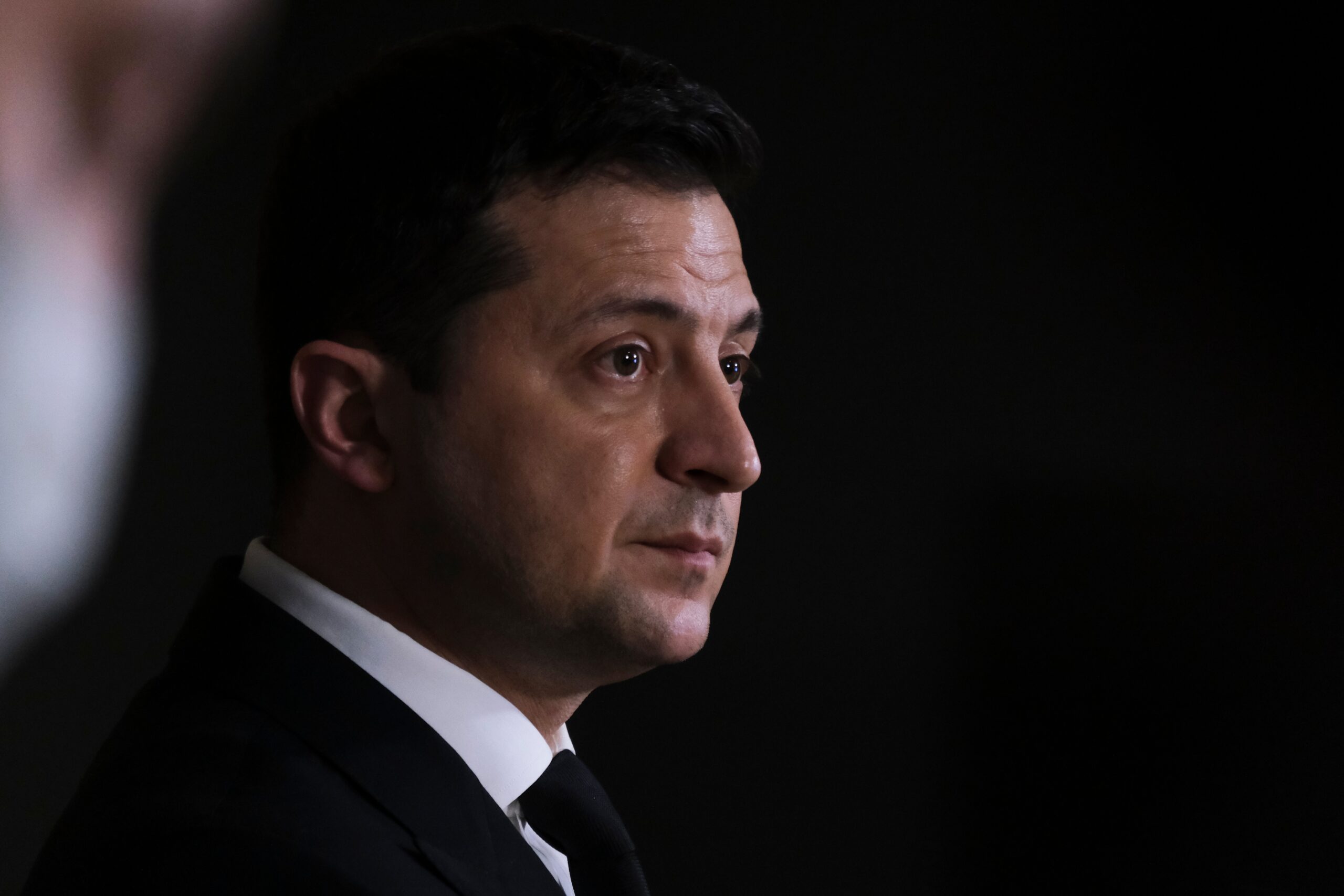The Morality of Ukraine’s War Is Very Murky
What is the morally preferable course of action in Ukraine? At first glance, it seems obvious. Ukraine is the victim of an illegal war, its territory is occupied, its citizens have suffered mightily at the hands of the invader, and its adversary is an autocratic regime with any number of unsavory qualities. Strategic calculations aside, surely the proper moral course is to back Ukraine to the hilt. As Ukrainian President Volodymyr Zelensky told a gathering in the Crimean city of Yalta last week: “When we are talking about this war, we are always talking about morality.” Not surprisingly, he conveyed the same message when he visited Washington this week.
If only the moral calculus were that simple.
Ever since the war began, those who favor giving Ukraine “whatever it takes” for as long as it takes have sought to portray the war in the usual U.S. fashion: as a straightforward contest between good and evil. In their telling, Russia is solely to blame for the war, and Western policy had absolutely nothing to do with the resulting tragedy. They portray Ukraine as a struggling but plucky democracy that has been brutally attacked by a corrupt, imperialist dictatorship. They see the moral stakes as nearly infinite, because the outcome of the war will supposedly have a far-reaching impact on the future of democracy, the fate of Taiwan, the preservation of a rules-based order, etc. Not surprisingly, they are quick to condemn anyone who challenges this view as a naïve appeaser, a Russian lackey, or someone lacking any sense of moral judgment.
None of these claims should be accepted without qualification. There’s no question Russia started the war and deserves to be condemned for it, but the claim that Western policy had nothing to do with it is risible, as NATO Secretary-General Jens Stoltenberg recently acknowledged. Yes, Ukraine is a democracy, but also one that still contains some unsavory elements, even if Russian President Vladimir Putin’s depiction of it as a “Nazi regime” is grossly exaggerated. The suggestion that the outcome of this conflict will have a profound impact around the world is even less convincing: The Korean War ended in a stalemate and negotiated armistice and the wars in Vietnam, Iraq, and Afghanistan were clear U.S. defeats, but the geopolitical consequences of these failures were mostly local; this is likely to be true in Ukraine, whatever the ultimate outcome. The same is true in reverse, by the way: The West’s overwhelming victory in the first Gulf War and Serbia’s defeat in the Kosovo War didn’t spark an enduring democratic renaissance.
Read the full piece in Foreign Policy.
